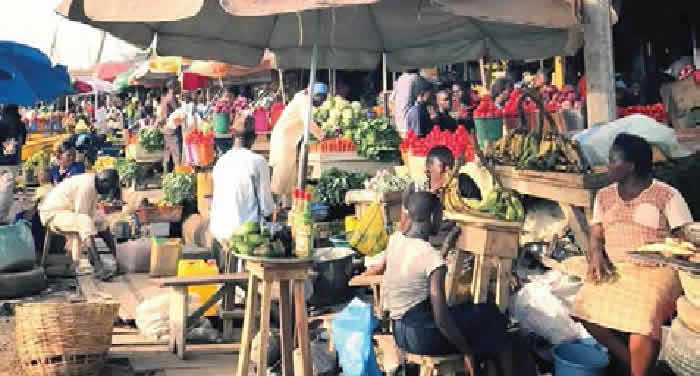As the Federal Government battles to tame food inflation and the worsening cost of living crisis in the country, Nigerians have urged President Bola Ahmed Tinubu to first chase away killer herdsmen that have scared away farmers from their farms through their murderous activities.
Across the country, many big-time farmers have abandoned their farms as cases of kidnapping and unprovoked killings became a daily affair, perpetrated by AK-47 wielding herdsmen.
Since 2015, cases of abduction, rape and murder have become widespread in the country. The nation’s forests and bushes have been invaded by herders who unleash mayhem on people.
Farmers attribute the high cost of food items partly to the high level of insecurity in the country. They strongly believe that had the farmers not been driven away from their farmlands, the cost of food items would not be as high as it is currently.
The country is facing a persistent food crisis as the prices of commodities skyrocket on a daily basis. Many Nigerians have attributed the crisis to the activities of gun-wielding herdsmen, who have made farmers abandon their fields.
The high cast of food items
The country’s food inflation rate rose from 33.93percent in December to 35.41percent in January. This is according to the National Bureau of Statistics (NBS) latest Consumer Price Index (CPI) report for January.
According to the 2023 State of Food Security and Nutrition World report, the number of Nigerians who are food insecure has increased by 133 percent in three years. It jumped from 63.8 million people between 2014 and 2016 to 148.7 million people between 2020 and 2022.
A medium-sized sliced bread priced at N750 in January 2023 has seen a 33 percent increase, now sold at N1,000. The cost of a piece of egg doubled from N100 to N200, and the cost of a crate of eggs rose from N2,200 to N3,500 within the same period.
Also, foreign parboiled rice in a 50 kg bag ranges between N70,000 and N77,000, compared to N34,000 to N36,000 last year. Local parboiled rice in a 50 kg bag now sells for N55,000 to N65,000, up from N30,000 to N34,000 in January 2023.
A derica of beans has surged from N450 to N1,100, and a 25-litre container of vegetable oil is now priced at N45,000, a significant increase from N22,000 last year. A paint of garri has doubled in price, reaching N2,000 from N1,000 in the same period last year.
Experts have linked the food crisis to lingering insecurity, particularly the invasion of farmlands herdsmen in the country.
“The population of smallholder farmers who have been displaced from either their communities or farmlands is impacting production. But I will expand by saying banditry, farmer and herdsmen clashes, land and boundary disputes, kidnapping for ransom,” Abiodun Olorundero, a managing partner at Prasinos Farms, said on the connection between herdsmen activities and the food crisis.
Olorundero also identified low investment in agriculture, over-reliance on the north by the south, climate change, economic instability, and the forex issue, among others, as causes of food inflation in Nigeria.
The clash between farmers and herdsmen has been a major challenge facing the country over the years. Thousands of people have lost their lives in the unending conflict, particularly in the north-central and some parts of the southern regions.
Recall that more than 140 people were reportedly killed during a clash between farmers and herdsmen in Plateau State in December 2023.
The unending clash between AK-47 wielding herdsmen coupled with the barbaric attacks by terrorists and bandits has made farmers abandon their farmlands, leading to a food crisis across the country.
“Farmers are displaced from their farms, fear of going to produce, and farmers are impoverished,” Olorundero spoke on the effects of the crisis on farmers.
To address this issue, the Southern Governors’ Forum in 2021 banned open grazing across the region. The then governor of Benue, Samuel Ortom, also prohibited herdsmen from grazing in his state.
Some states also established local vigilantes and other security outfits to tackle the crisis. For instance, the Western Nigeria Security Network (WNSN), codenamed Operation Amotekun, was established in the Southwest.
The anti-open grazing policy and local security outfits haven’t done much to solve this challenge as gun-wielding herdsmen continue to torment farmers on their farmlands.
“They are far from being effective, as those causing the unrest are either more powerful or motivated than the farmers and security agents.
If the government were doing enough, then we wouldn’t have daily reports. There needs to be ward-to-ward recruitment and empowerment of local policing across the board,” Olorundero said of the effectiveness of government measures to address the issue.
He recommended the registration and provision of identification cards to cattle herders and dispute resolution strategies to address the crisis.
Olorundero also called for the provision of ranches by the authorities and tight border security to stop “foreign bad eggs from encroaching on our territory.



